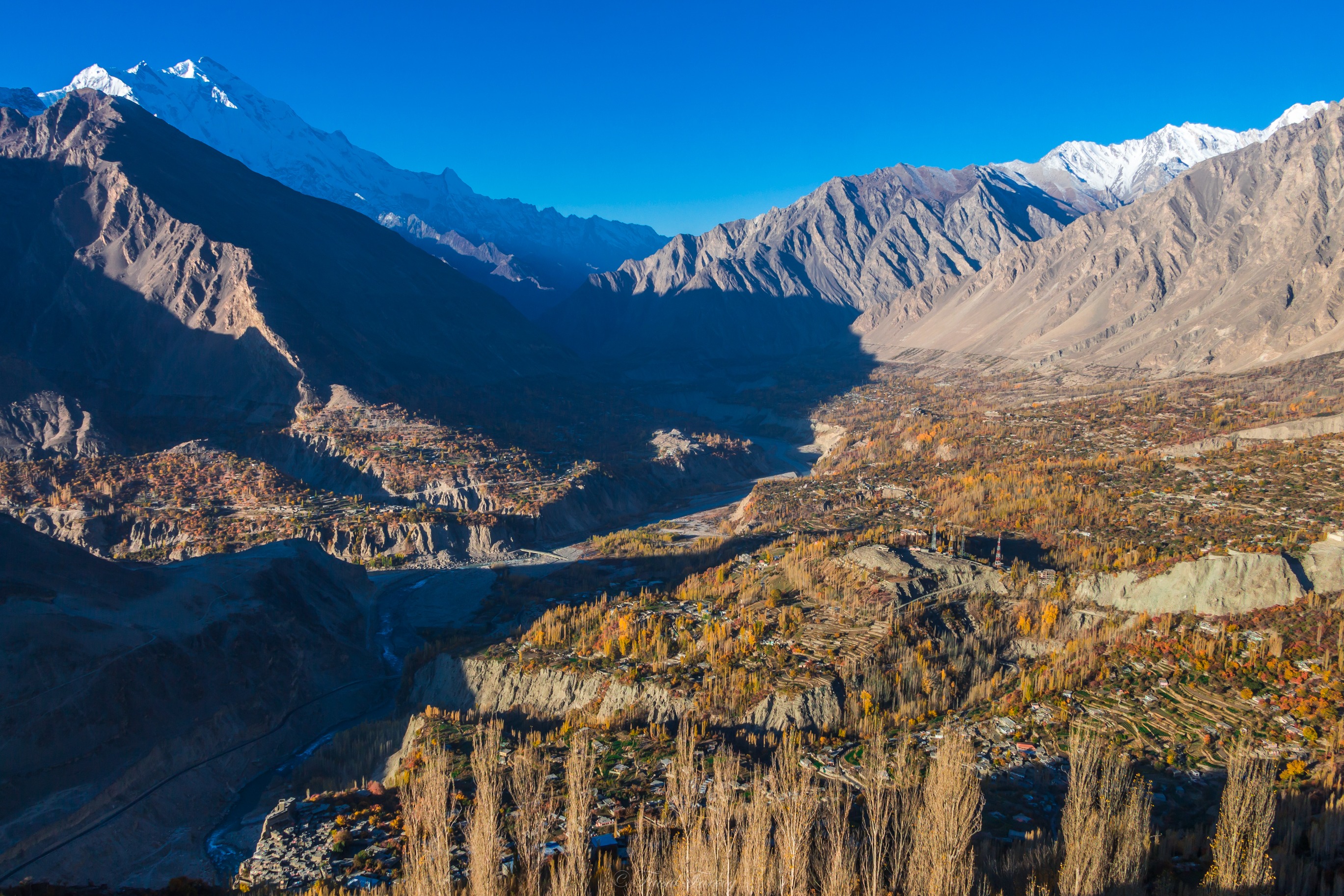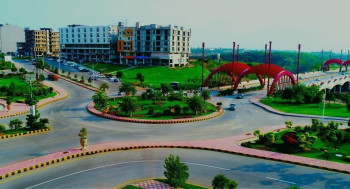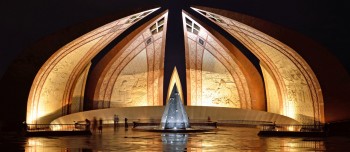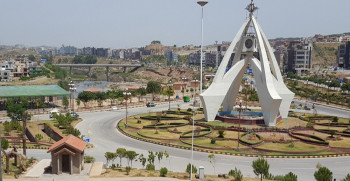Hunza Valley became Plastic Bag Free District - Know Here
Hunza Valley is a veritable piece of heaven on earth. This scenic region of Pakistan in Gilgit-Baltistan has been awarded another title- the Switzerland of Asia!
This place has an expansive green meadow that is full of high-altitude mountains. The mountains are snowcapped, and the Hunza rivers are blue. There are other beautiful things here too, like people who make art. People come here to see all these beautiful things during the summer because it's so pretty!
As we all know, non-biodegradable plastic bags are a leading cause of environmental pollution across the world. This is especially true in South Asia, where it has been estimated that there may be up to 164 thousand tons of garbage ending up in rivers like the Indus River annually!
Pakistan is facing some major challenges with both sanitation and waste management. There are over 100 million people in Pakistan who don't have access to clean drinking water. And these effects are disturbing the ecosystem as well.
Plastic is a type of material that can take a long time to decompose. If you breathe in this plastic, it can make you sick. But the production of plastic has been going up for the past couple of years even though some places have banned using plastic bags and other things. So far, these bans haven't been as successful as people hoped.
Many cities of Pakistan are struggling to eliminate this plastic waste, but Hunza Valley is the first one to get rid of plastic waste.
Hunza is a valley in Pakistan. It's very narrow and surrounded by the Karakoram mountains. Also, the world’s highest mountain peak Nanga Parbat is also located here. Most cities across the world struggle to make themselves plastic-bag-free, but Hunza became the first plastic-bag-free city.
Hunza People want to keep it that way. So they cooperate with each other and support each other when they see someone who has used a bag instead of reusing something else for their groceries or anything else you would buy and carry home from the store or market or anywhere else.
But before we talk about Hunza Valley being the first plastic-free district in Asia, let's look at why it is good for people to use less plastic.
Why is it Necessary to Ban these Plastic Bags?
Following are the reasons why it is necessary to ban these plastic bags:
- Almost all single-use plastics, like shopping bags, are made of polypropylene. It is a non-renewable fossil fuel-based material that emits a lot of greenhouse gases when it is being extracted and made.
- Since plastic bags do not decay, they end up in the oceans and on land. The small pieces of plastic are eaten by animals such as fish and birds. They get sick and die.
- Bags can get caught on animals and sea creatures. This is bad because they will suffocate.
- The polythene bags that are used for most of our food contain a toxic chemical called BPA. This is harmful to people's health, but the problem is that most of our food comes wrapped in this material.
- A ban on plastic bags is necessary because we cannot recycle them, and even if we do, a lot of them still end up in landfills and the ocean.
How did this Plastic Bag Ban in Hunza become Successful?
In April 2019, this narrow valley in northern Pakistan became the first district to ban plastic bags. It was against using them. It came after they found out that about 70,000 of these lightweight plastic bags were being discarded every month in this valley which has quickly become a major tourist spot.
In Hunza, there are no places to put trash. After the plastic ban in Hunza, similar bans were rolled out in different cities across the country. These bans include Islamabad, Lahore, Karachi, and Quetta. But even though it is a lush green valley with more than 500,000 visitors every year, it has the title of being Pakistan's first plastic-free district.
With the help of the G-B Environmental Protection Agency and the Karakoram Area Development Organisation, the government of Hunza launched a pilot ban for this district to clean up. It's popular because it is in between mountains and attracts more than half a million tourists every year. Plus, it has an important part of the Karakoram highway, which makes even more people want to go there.
The local government in Hunza is working with the Gilgit Baltistan Environmental Protection Agency and the Karakoram Area Development Organisation to introduce a ban. The organizations also distribute biodegradable bags with anti-plastic slogans among locals.
Later, nearly 50 women and over a dozen disabled citizens were hired to make reusable shopping bags. This was done because the plastic used to be more common before plastic became cheap and convenient.
Some people don't like that the government made a rule that people can't use plastic bags. But some tourists think it is good because they protect the environment and make it look nicer with no plastic bags.
It is good that Hunza Valley has managed to reduce how much plastic they use. It is a great achievement for them!
Clean Hunza Project
The Clean Hunza Project is a pilot program that is part of the wider initiative to completely ban plastic bags in the region. Nestlé Pakistan signed a Memorandum of Understanding for the Clean Hunza Project with the District Council Hunza, Karakoram Area Development Organization, and Gilgit Baltistan Waste Management Company.
Nestlé, the company that makes food and drinks, will help people in Pakistan with waste management. It will do this by collecting plastic and paper. The project is divided into phases. The first phase is about 150,000 kilograms of plastic per year.
In the next phase, Nestlé will collect 50,000 kilograms of paper packaging like milk cartons. And every year this value will be increased by 10%. It's important to note that the Hunza Environmental Committee does waste management and disposal in Hunza.
Visiting Hunza Valley - Exploring the Beauty of Pakistan
Pakistan is a good place for holidays. It is the best place in 2020 by US-based Conde Nast Traveler. The truth is that Hunza Valley is one of the most popular places in Pakistan.
The truth is, Hunza Valley is one of the most popular places in Pakistan. However, it has a few tourist destinations that are underrated and hidden. There is a lake called Attabad Lake, there's a glacier called Ultar Glacier, there's an old fort called Altit Fort and Baltit Fort, and there are tall hills called Passu Cones. And Borith lake is worth visiting.
Hunza Valley is in Gilgit Baltistan Region. The best time to visit is between March and October. The beautiful valley is on people's travel list. You can find tour guide there also the people of Hunza valley are very hospitable.
Lets us discuss some other facts about Hunza valley:
- Clothes of Hunza People
People in Hunza wear traditional clothes. They use embroidery and stitching to make clothes. Women often wear shirts that are knee-length and shalwar kameez, which have a headcover made of embroidered woolen material called pattu. People wear loose gowns as overcoats in winter, which they call shuqa.
- Education of Hunza People
Most people in the Hunza area are educated. They have a 98% literacy rate, and most young people go abroad for higher education.
It is called the role model of Pakistan because it has a high literacy rate and school enrollment statistics. Virtually every child in Hunza now goes to high school.
- Food of Hunza People
Hunza valley is famous for its fruit. There are lots of fruits grown in the area. People also grow maize, peas, wheat, and vegetables there.
The people there love apricots so much that they measure wealth by how many apricot trees they have. The apricots are grown all over Hunza valley - you can see them everywhere!
- Sports of Hunza People
People in Hunza are very playful and do a lot of games. For example, there is Polo. People also enjoy sports like hiking, fishing, rock climbing, white water rafting, cycling, and skiing.
It is a good place for people to visit because it has so many things to do. In addition, the people in the area have traditional dances that they love.
After knowing about these facts and the clean environment of Hunza Valley, when are you planning your Hunza valley tour?

Content












Join our growing community
Subscribers
Youtube
Twitter
Instagram
Facebook